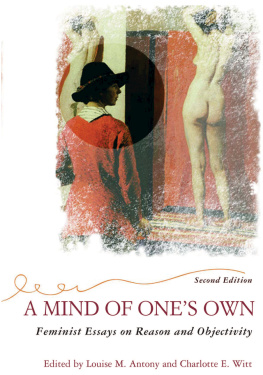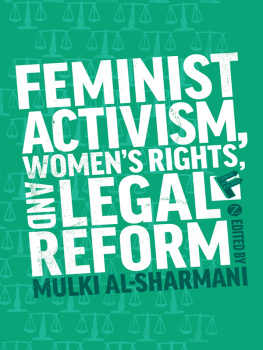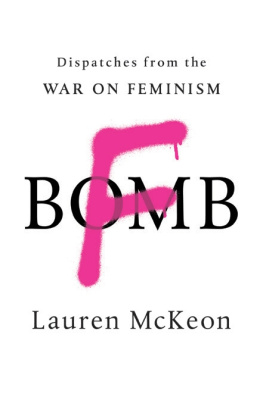Acknowledgments
I BEGAN THIS BOOK as a graduate student in the American Civilization and History programs at Brown University over a decade ago, and my greatest debts are to the faculty and graduate students there who befriended and supported me while I was writing my dissertation. Most important, I want to thank Professor Mari Jo Buhle for the extraordinarily generous and incisive criticism she gave me year after year, draft after draft, and for the unobtrusive way she provided for all my academic needs. I also benefitted greatly from the careful readings of Professors Jack Thomas, James Patterson, and Mary Gluck, each of whom contributed substantially to my development as a historian. In addition, I would like to express my appreciation to Naomi Lamoreaux, who encouraged me at a crucial stage in the formulation of the topic, and to Tony Molho, whose compassion sustained me at a critical juncture. I also benefitted immensely from the discussions held by the Pembroke Seminar, under the direction of Karen Newman and Elizabeth Weed. Moreover, a number of scholars outside my graduate institution treated me with great kindness and respect, bolstering me when I was feeling discouraged. I am especially grateful to Hazel Carby for her expansive commentary at my first professional conference; to Nancy Hewitt for validating my work at a very early stage; and to Gina Morantz-Sanchez for adopting me as one of her graduate students, even though she already had plenty of her own. Finally, I had the unbelievable good fortune to be surrounded by a remarkable community of vibrant young scholars, whose work has been the inspiration of my own. To these friends and colleagues, I offer my love and gratitude: Kevin Gaines, Matt Jacobson, Gail Bederman, Bob McMichael, Lyde Cullen Sizer, Todd Gernes, Linda Grasso, Oscar Campomanes, Ann duCille, Tricia Rose, Suzanne Kolm, Lou Roberts, Elizabeth Francis, Ruth Feldstein, Lauri Umansky, Donna Penn, Michael Topp, Yardena Rand, Harry Williams, Bruce Dorsey, Roseanne Camacho, Jim Cullen, Krista Comer, Jane Gerhard, Jessica Shubow, Bill Hart, Joanne Melish, Nan Boyd, and Melani McAlister.
I also would like to express my gratitude to my former colleagues at Harvard University, who welcomed me into their community and expressed genuine interest in my work, especially Liz Muther, Jan Thaddeus, Chris Appy, Jim Engell, Pat Palmieri, Meredith McGill, John Norman, Bob Lamb, Mark Dolan, and Laurence de Looze; and to my current colleagues at the University of Florida who have taken me under their wing and challenged me in many ways: Bob McMahon, David Colburn, Ron Formisano, Bert Wyatt-Brown, Bob Zieger, David Chalmers, Jeff Adler, and Tom Gallant. Special thanks to Susan Kent, Carol Lansing, Maria Todorova, Betty Smocovitis, Sue Rosser, Elizabeth Langland, Pat Miller, Jeff Needell, Eldon Turner, and Maureen Turim for their loving mentorship and helpful criticism of my work. I also would like to acknowledge Kathryn Burns, Fitz Brundage, Fred Corney, Jay Tribby, Mark Thurner, Sheryl Kroen, and Alice Freifeld, colleagues-in-arms, for their sincere enjoyment of my work and to thank them, as well as Arun Agrawal and Rebecca Karl, for the exquisite pleasure of their intellectual company. Finally, I want to express my deep appreciation to Betty Smocovitis, Matt Jacobson, and Rebecca Karl for their thorough perusal of my manuscript. Betty saved me from many embarrassing errors, Rebecca compelled me to fill in (some of) the logical gaps, and Matt assured me that the manuscript was ready for publication. There is no question that this book would have been much the worse without their interventions.
In addition, I feel a great debt of gratitude to Marcia Dambry of Harvards History and Literature program, Sybil Mazor of Browns American Civilization program, and Betty Corwine and Kimberly Yocum of the University of Floridas History Department, for taking such good care of me, far in excess of what our professional relationship requires. I have also been blessed to have had many wonderful students, and I am truly grateful for their interest and support. I want especially to thank Andrew Chancey, James Wilson, Matthew Franks, Carol Giardina, James Thompson, Andrew Frank, Lisa Tendrich Frank, Wendy Beauchamp, Julian Chambliss, Donna Jacklosky, Adam Lifshey, Rebecca Walkowitz, James Forman, Jr., Jace Anderson, Ben Wizner, Ryan Schneider, and Linda LeCraw.
Scholars can not do good work without great librarians, and I have been fortunate to have had the assistance of some of the best. Elizabeth Coogan and Beth Beretta-Wendt in the interlibrary loan division of Browns John D. Rockefeller library worked tirelessly to furnish many crucial sources. Karen Lamoree, during her tenure as the Farnharn archivist in the Hay Library, shared with me many of her discoveries of previously unknown materials. John Van Hook at the University of Florida has proven to be a resource beyond measure. Moreover, I will be forever grateful to the American Council of Learned Societies for believing in this project enough to grant me a yearlong fellowship, and to the University of Florida for providing financial assistance in the summer of 1994 and release time from teaching in 199596.
I would also like to express my respect and gratitude to the staff at Oxford University Press. In particular, I want to thank my editor Thomas LeBien, who has had faith in me from the start; Susan Ferber and Robert Milks, who have taken care of all the nagging details with extraordinary patience and grace; and my copyeditor, Martha Ramsey, whose dedication to perfection has made this a much better book.
Finally, I want to thank my family and friends who have stood by me these many years: my mother, Marsha Newman, who did everything she could to ease the pain of writing; Barbara Walzer, who taught me how to read the past in physical objects; Matt Jacobson, whose inimitable mix of humor, compassion, and understanding sustained me at the end; Gina Morantz-Sanchez who read (and liked) every word I wrote; and Kevin Gaines, who believed in me and appreciated the value of my work, long before I did.
Selected Bibliography
Manuscript Collections
Mary Abigail Dodge [Gail Hamilton] Papers, Essex Institute, Salem, Mass.
Mary Abigail Dodge [Gail Hamilton] Papers, Womens Rights Biography, Smith College Archives, Northampton, Mass.
Charlotte Perkins Gilman Papers, Schlesinger Library, Harvard University, Cambridge, Mass.
Otis Tufton Mason Collection, National Anthropological Archives, Smithsonian Institution, Washington, D.C.
Mary [sic] French Sheldon Papers, Manuscript Division, Library of Congress, Washington, D.C.
Lester Ward Papers, John Hay Library, Brown University, Providence, R.I.
Manuscript Collections on Microfilm
Gerritsen Collection of Womens History. Glen Rock, N.J.: Microfilming Corporation of America, 1975.
History of Women Microfilm Collection.
National Womans Party Papers Microfilm Collection.
The Papers of Elizabeth Cady Stanton and Susan B. Anthony. Ed. Patricia G. Holland and Ann D. Gordon. Wilmington: Scholarly Resources, 1991.
Elizabeth Cady Stanton Papers. Manuscript Division, Library of Congress.
Wisconsin Progressives: The Edward A. Ross Papers: Guide to a Microfilm Edition. Ed. Harold L. Miller and Lynn Buckley Aber. Madison: State Historical Society of Wisconsin, 1986.
Published Primary Sources
Allen, Grant. Plain Words on the Woman Question. Popular Science Monthly 36 (December 1889): 170181. Rpt. from Fortnightly Review (October 1889).
. The Romance of Race. Popular Science Monthly 53 (August 1898): 511521.
. Spencer and Darwin. Popular Science Monthly




